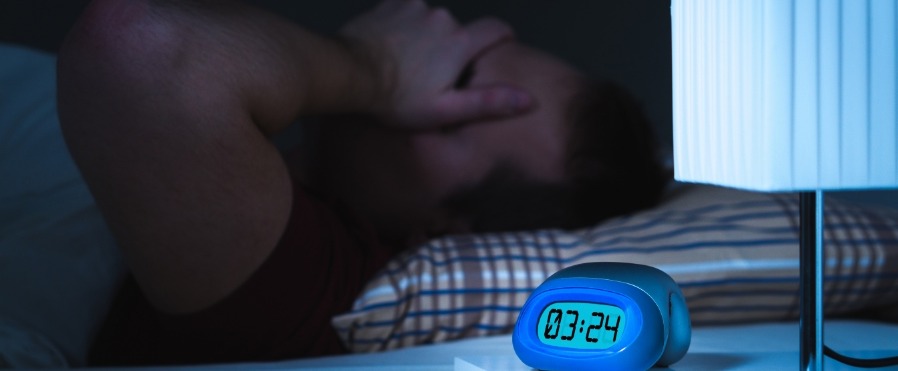Has a loved one ever described a situation where you stopped breathing in your sleep, long enough that they began to panic? It’s normally nothing to worry about as you roll over and start snoring again, much to the relief of your partner. However, if this is a common occurrence, this could be a sign of sleep apnea. It can be a serious sleeping disorder and could even require medical treatment.
In this article, we’re going to look at some of the symptoms of sleep apnea and what causes the sleeping disorder. We’ll explain why even though they’re not medical beds, our Comfomatic adjustable bed range could help you get a better sleep at night if you’re suffering with sleep apnea.
What is Sleep Apnea?
Sleep apnea is a common but potentially serious sleeping disorder. Many people treat the condition like a joke, but it shouldn’t be addressed lightly.
Most people suffering from sleep apnea have little idea that they’re causing panic all around them, until their partner tells them. If you have sleep apnea, it’s likely that you’ll be a loud snorer. You’ll sleep soundly, until your breathing stops for more than a few seconds at a time. You’ll suddenly jolt back in to your natural sleeping pattern, and this could repeat hundreds of times each night.
There are a few different types of sleep apnea that you need to know about:
- Obstructive sleep apnea is the most common form of the sleeping disorder. This type of sleep apnea occurs when an airway is blocked or when throat muscles are completely relaxed.
- Central sleep apnea is slightly less common, and more serious. Your brain doesn’t send the correct signals to the muscles which control your breathing during sleep.
- Complex sleep apnea syndrome is the most serious condition. This is a combination of both other types of sleep apnea.
What Are the Symptoms of Sleep Apnea?
Now that you know what sleep apnea is, let’s have a look at some of the most common symptoms. Sometimes, you might not know if your sleeping pattern is interrupted during the night unless your partner is able to tell you. They should be able to spot some of the following signs:
- Noticeably loud snoring
- Moments where you stop breathing altogether, then suddenly begin to snore again. This could repeat in cycles
- Choking, or even gasping for air during sleep
If you sleep alone, then there are some other symptoms of sleep apnea that you should be able to spot:
- Frequent morning headaches
- Difficulty getting through each day, or paying attention during the day as a result of fatigue
- Irritability and mood swings
- Waking up frequently during your sleep
- Difficulty getting to sleep and staying asleep – although this is a more serious symptom
Sleep apnea can sometimes be difficult to diagnose. If you think you may be suffering from the sleeping disorder, it’s worth making an appointment with your local GP. They’ll be able to test you for the condition and assess how serious it is. They might even recommend treatment.
Without treatment, sleep apnea can cause other health issues like high blood pressure and mental health issues. Your quality of sleep is much more important than you may believe.
Common Sleep Apnea Treatments
Your GP may refer you for further sleep apnea tests, but there are a few techniques you can try in order to improve your quality of sleep. Many people find that losing weight can help – you might have extra tissue in their throat that could block your airways and cause choking during the night. By losing weight, you could potentially reduce this extra tissue.
Other common advice is to stop smoking, drink less alcohol before sleep and exercise regularly. It’s also highly recommended to try sleeping on your side. If you attempt to avoid sleeping on your back, it’s less likely that your tongue and other tissues will be able to block your airway.
Other, less common tips include using a tennis ball to prevent you from rolling on to your back, or using extra pillows to prop up your head.
Our Adjustable Comfomatic Beds Could Help
Whichever technique you’re using to improve your quality of sleep, doing so with one of our adjustable beds will help. Responses from Comfomatic’s sleep survey of over 1,000 customers has demonstrated significant improvements in sleep quality with beds from the Comfomatic range.
Our beds can be adjusted to a multitude of angles to suit your preferred sleeping style.
Our range of adjustable beds do not provide a cure to your ailments, but there’s a good chance they’ll help you to sleep in a position which increases the amount of time you actually spend in a deeper slumber.
Contact our team today to find out which product could help you get the quality of sleep you deserve.
